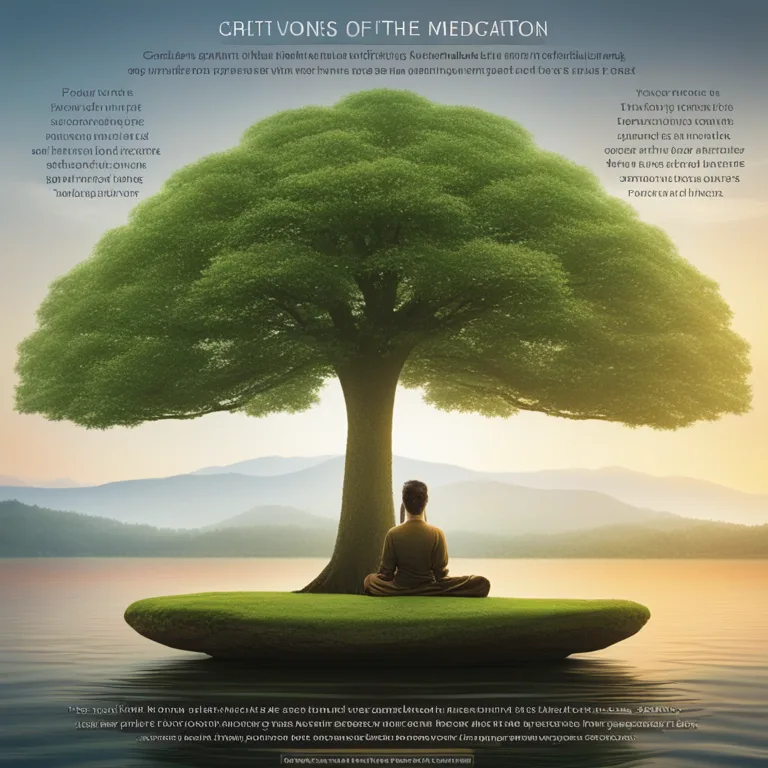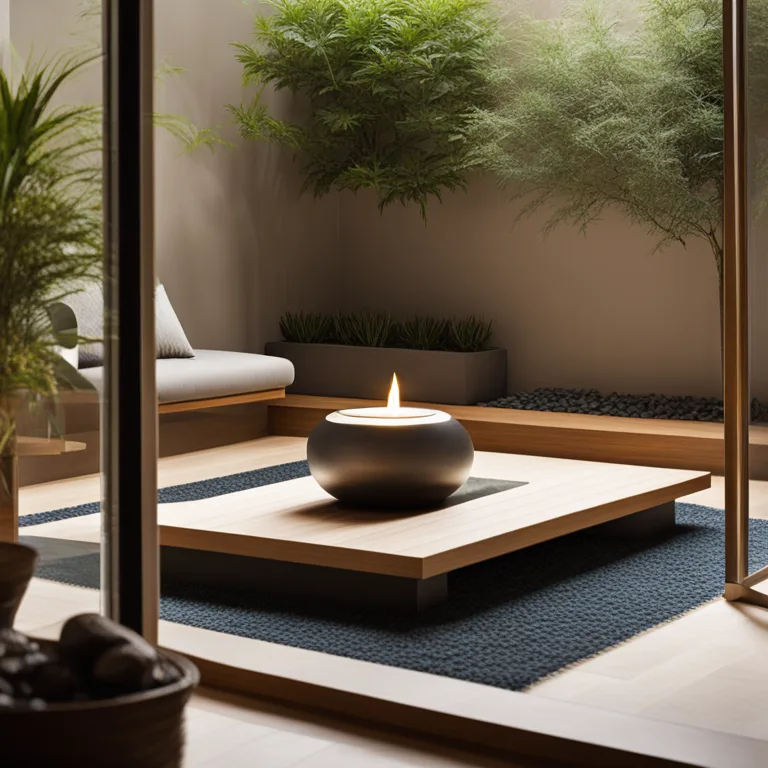
Guiding Steps for Mindfulness Meditation
Learn effective strategies for practicing mindfulness meditation to cultivate mental peace and enhance your well-being.
article by Hina Kurosawa
Fundamentals of Mindfulness Meditation
Mindfulness meditation is a powerful practice that roots an individual in the present moment, fostering peace and clarity. It's a method of attaining mental tranquility by observing thoughts and sensations without judgment. Let's start with the core premise: mindfulness meditation isn't about silencing your thoughts; it's about becoming aware of them. It involves acknowledging your sensory experiences, thoughts, and feelings, recognizing they are transient and do not define you or your reality.

Preparing Your Space
Your meditation environment can greatly impact the quality of your practice. Select a quiet, comfortable spot where you will not be disturbed. You might choose to add calming elements such as soothing music, dim lighting, or incense. However, simplicity is key—ensure your space is decluttered to minimize distractions. A dedicated meditation area can also serve as a visual reminder of your commitment to mindfulness and your personal well-being journey.

Adopting the Right Posture
Physical comfort is vital for maintaining focus during meditation. Sit with a straight yet relaxed spine, whether on a cushion, chair, or the floor. Your hands can rest gently on your knees or lap. If you choose to lie down, make sure to keep your body aligned and supported. Above all, find a position that allows you to remain still and alert for the duration of your practice.

Engaging in the Practice
Begin your meditation by closing your eyes or fixing your gaze on one unmovable spot to reduce visual stimuli. Bring your attention to your breath, noticing the sensation of air entering and exiting your nostrils or your chest rising and falling. Stay anchored in this observation, and if your mind wanders, acknowledge it without frustration and gently guide your focus back to your breathing.

Observing Without Attachment
As you meditate, you'll notice thoughts and feelings arising. Observe them as if they were clouds passing through the sky of your mind. The key is not to latch onto these thoughts or react emotionally but rather to witness them with neutrality. This practice develops a mindful distance from your internal narrative, leading to inner calm and improving emotional regulation.
Incorporating Mindfulness into Daily Life
Mindfulness meditation extends beyond your practice sessions. It's about nurturing a state of awareness throughout your day. Engage in activities mindfully, whether eating, walking, or conversing. Pay attention to the sensations and experiences in the moment, practicing non-judgmental awareness. This not only enhances the quality of your everyday life but also strengthens your meditation practice.
Sustaining Your Practice
Consistency is the bedrock of a successful meditation practice. Aim for a daily session, even if it's just for a few minutes. As your routine solidifies, you can gradually increase the duration. There are numerous apps and online communities available in 2024 to help you stay motivated and connected. Remember, mindfulness is a journey, not a destination, and every moment of awareness is a step toward mental balance and clarity.
Published: 1/8/2024
Modified: 1/8/2024
More predictions
Come back here soon to learn more about yourself and your future


Can Meditation Alleviate Symptoms of Depression?
Delve into the therapeutic potential of meditation for managing depression and enhancing mental well-being in this insightful article.


The Power of Meditation: Enhancing Life with Inner Peace
Discover the profound benefits of meditation techniques for mental clarity, emotional balance, and overall wellness.


Meditation and Depression: A Path to Healing
Discover the potential of meditation as a complementary treatment for depression, delving into how mind-calming practices might offer a beacon of hope for those seeking relief.